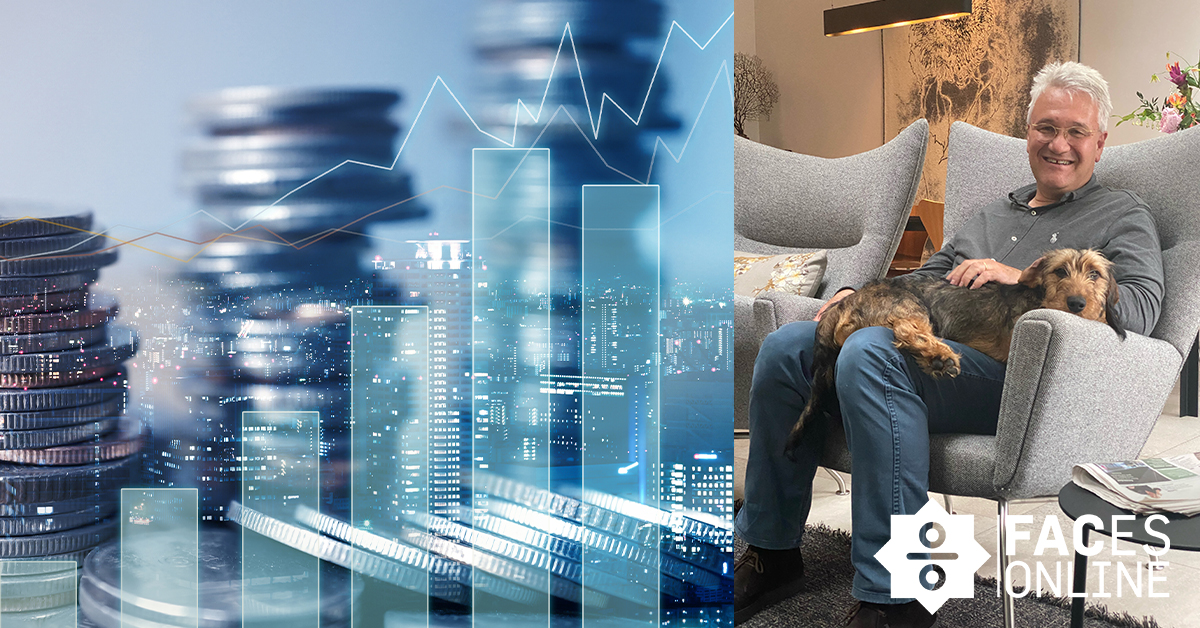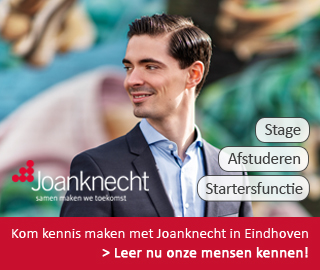For the Dutch version, click here
Roderick Munsters may not be a born but raised Brabander who studied at the University of Tilburg from 1981 to 1988. Besides following his MSc. Business Economics and the MSc. Finance at TIAS, Roderick was very active in his student days at T.S.C. St. Olof and Dispuut Kongsi. Currently, Roderick holds several supervisory positions at large international companies. He is married to Marjoanne Munsters and together they have two children, Mart and Milou.
What were your plans right after graduating from Tilburg University? Did you know right away that you wanted to go into the financial world?
At the start of my studies, I did not yet know in what sector I wanted to work. The jobs were not easy to come by then. I graduated in the investment subject of securitization, in which you make debt securities marketable. At the time, this was a very unknown subject in the Netherlands. I started my career at Esso Benelux in Breda. In retrospect, this did not quite fit with what I was looking for. Via Piet Duffhues of the university, I came into contact with Interpolis. I started there at the department fixed-interest value. At Interpolis, we applied a value arbitrage strategy that was very successful. Later, I became responsible for Interpolis’ capital markets department. In 1997, when I had been working at Interpolis for eight years, the entire investment business was transferred to Robeco. I then made the switch to PGGM and became Chief Investment Officer there. This was a nice step for me towards the pension world
How did you experience the switch from insurance to a pension fund?
I did not find the step from an insurer to a pension fund to be a huge one. I did find the step from departmental director to Board of Trustees a big one. I went from managing a team to managing an entire business unit. I was 33 at the time and therefore still relatively young, but I was lucky that PGGM CEO Dick de Beus took me under his wing. The main task as CIO at PGGM was to modernize the investment strategy and create more in-house management. We wanted to grow in portfolios with a link to real returns, such as private equity, commodities, and inflation-linked products. As PGGM (healthcare pension fund), we worked a lot with ABP/APG (government pension fund). It was a very exciting time, in which I was given a lot of room to excel with my whole team.
After eight years at PGGM, I was asked to succeed Jean Frijns as CIO at APG. I enjoyed working here for five years, after which I was asked to become the CEO of Robeco Group. A common thread in my career is that the people around me have always been very important. At Robeco, for example, I had a very professional and outspoken chairman of the Supervisory Board alongside me in Dick Verbeek, from whom I learned a lot.
A major challenge in my career was the sale of Robeco by Rabobank to Orix, a large Japanese financial services provider. For me, it was very important that Robeco, in the interest of both clients and employees, was sold as one company and that there would be no break-up. Fortunately, this also succeeded. Robeco is still doing well and has continued to grow because they have some good investment strategies. They have not grown further through mergers and acquisitions, which was Orix’s initial intention.
I left Robeco two years after the sale. I then became CEO of French Edmond de Rothschild Asset Management.
What was it like working for a French asset manager?
It was very different working at Robeco, not so much because Edmond de Rothschild is French, but because it is a family business focused on managing French institutional money as well as the assets of wealthy families. It is a well-known name worldwide, so much of it is under a magnifying glass. My main intention was to have the investors of Edmond de Rothschild’s bank in Switzerland cooperate much more with the head office in Paris. This was eventually implemented.
SRI is currently becoming an increasingly important factor in the investment world. How did you guys deal with this in the past? Is this in line with how it is now?
From the end of the 1990s, I have been focusing on sustainability at both PGGM and APG and took the first steps to include sustainability as a criterion in investment decisions. Sustainable investment is becoming an increasingly relevant and well-known subject. There are actually two reasons for this. Society wants consumer money to be handled responsibly, but sustainability factors also have a major impact on a company’s financials. As a company, you can be fined for emissions and customers will turn away if, for example, child labor is used. This change also brings opportunities for companies, such as the new market for renewable energy. In practice, you also see that administrators are increasingly concerned with sustainable business, as also outlined in the Sustainable Development Goals of the United Nations. I personally think that the government could and should play a more active role in making the business community and financial sector even more sustainable, for example by pricing CO2 emissions. I expect that a business model based on sustainable entrepreneurship will emerge for many countries in the long term.
The corona pandemic has drastically changed the way we work for over a year. How do you deal with this?
It’s perfectly doable to work from home and most companies are now well equipped for it. I normally work abroad, so I save a lot of travel time. However, I also look forward to meeting people again. This brings energy, new ideas, and insights, from which you can learn a lot. Video conferencing is practical and this will definitely continue, but I hope and expect that many meetings will go back to physical.
You have been a member of the Supervisory Board at Unibail since 2017. Last year, due to the corona crisis, Unibail was hit hard and a rights issue was considered. What was your role during this period and how did you experience it? How do you see the future for retail real estate because of e-commerce and the corona pandemic?
Shopping centers worldwide had to close for months at a time, which created risks regarding rental income. From the summer onwards, we started preparing plans on how to reduce the debt ratio. We looked at the possibilities of coming up with a solution, including a rights issue. Although the shares would then be diluted, this is better than having the credit rating down too sharply. However, there were too few shareholders who voted for this share issue. When the market calmed down again and news came out about a possible vaccine, it was decided not to go ahead with a possible issue.
“A common thread in my career is that the people around me have always been very important.”
We are seeing stores slowly reopen, but attendance numbers are still much lower than before the pandemic. We expect that only the large, strong real estate centers and city centers will survive. We are also looking at combining living, working, and shopping. Physical stores will continue to exist, but we expect that they will be large shopping centers with a wide range that will survive well.
What are the highlights of your career for you?
Working with interesting people from whom I was able to learn a lot. The human aspect, achieving success together or supporting each other in difficult times. I also continue to find the entire financial world incredibly attractive. Providing capital for entrepreneurs to grow is a pivotal point in society. I’ve been fortunate to have rolled into this.
How have you handled the personal/work balance throughout your career?
Personally, I have had a routine of regularly working a day at home since the 1990s. I also had a 4-month sabbatical and took time for myself and my family. Sometimes you have to draw a line and say: ‘now I am not available for a while. There is even a law in France that you don’t have to answer business emails at the weekend.
Do you have any tips for students who also want to go in the same direction with their future careers?
I would urge everyone to do a lot alongside their studies during their time as a student. Just having a beer and a bite to eat is also important. Travel, enjoy life, and get everything out of it. Feel free to take a little more time during this period in your life where you have a lot of hours available.
Do you have anything else you want to add or give away?
Be open to innovation. This has brought me a lot. Don’t hold on too much to things you know, but seek out and embrace change. Be flexible, society will also benefit from this later on.

















